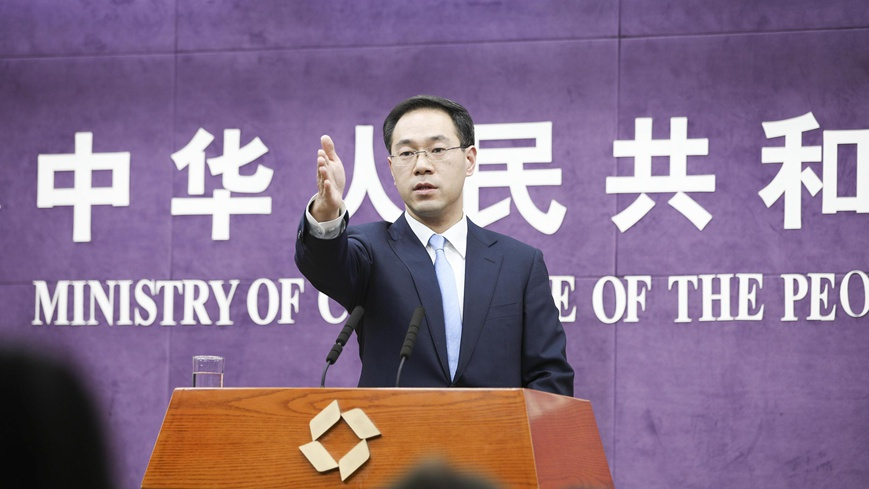
Economy
20:54, 31-Jan-2019
China's consumption rose steadily in 2018, IPR protection on front burner
Zhang Xinyuan

China's consumption of consumer goods increased nine percent in 2018, Gao Feng, spokesman of the Ministry of Commerce, told a news conference on Thursday.
Total sales of retail goods reached 38.1 trillion yuan, maintaining steady growth with the government continuing efforts to expand domestic trade over the past year, he said.
Physical goods accounted for 18.4 percent of retail sales of consumer goods, up by 3.4 percent year-on-year, and the service trade accounted for 44 percent of daily consumption.
Consumption contributed around 76 percent of China's economic growth, higher than in 2017.
On employment, domestic trade created 208 million jobs in 2018, an increase of 8.5 percent.
Tax income rose by 11.9 percent with retail business and the service industry providing around 2.4 trillion yuan, a 2.8 percent jump.
The top three tax income contributors were retail, accommodation, and restaurant and catering. Taxation on retail sales stood at around 690 billion yuan, up by 11 percent, and for the accommodation sector, it rose by 13 percent, and restaurant and catering by 15.2 percent.
Progress in IPR protection
In 2018, China made remarkable progress in intellectual property rights (IPR) protection, Gao said. From a legislative perspective, it has established a comprehensive legislative framework to protect IPR.
From the judicial perspective, China has set courts to deal with IPR issues in Beijing, Shanghai and Guangzhou.
The government has also stepped up efforts to crack down on some of the criminal activities related to IPR.
"All of our efforts will effectively protect the legislative rights of Chinese citizens and people from overseas," said Gao. "China stays firm in protecting the IPR, we will take more measures, and will make a lot of efforts in the area of legislation so that we could better to protect the IPR."
The government will also improve the efficiency in reviewing IPR cases. "We will also launch a punishment and compensation mechanism to deal with the IPR issues, and will take stern measures to crack down on criminals violating the IPR rules," the spokesman said.
New foreign investment law in place
A draft of the new foreign investment law was launched by the standing committee of National People's Congress (NPC) this week for eventual submission to the 13th NPC for deliberation.
"The launch of the new foreign investment law will confirm that we will continue to promote foreign investment and protect the rights of foreign investors. China will continue to focus on the rules and regulation to manage foreign investment," said Gao.
The ministry will continue to work with the NPC and push forward an early implementation of the new foreign investment law and will work with relative authorities to further improve the details of the new law, so that it can take effect on an early date. The purpose is to provide a rules-based international business environment.
"China will continue to push forward a new round of high-quality opening up and a new law will provide a legal foundation," Gao said.

SITEMAP
Copyright © 2018 CGTN. Beijing ICP prepared NO.16065310-3
Copyright © 2018 CGTN. Beijing ICP prepared NO.16065310-3